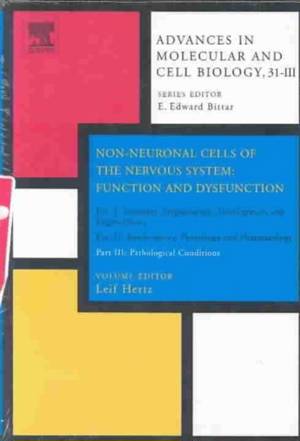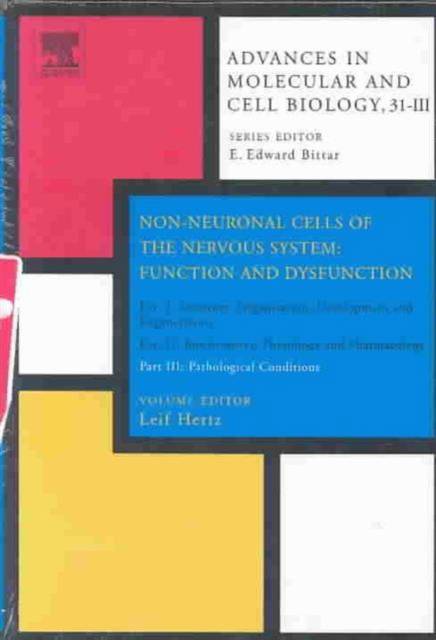
- Retrait gratuit dans votre magasin Club
- 7.000.000 titres dans notre catalogue
- Payer en toute sécurité
- Toujours un magasin près de chez vous
- Retrait gratuit dans votre magasin Club
- 7.000.000 titres dans notre catalogue
- Payer en toute sécurité
- Toujours un magasin près de chez vous
Non-Neuronal Cells of the Nervous System: Function and Dysfunction
Part I: Structure, Organization, Development and Regeneration: Part II: Biochemistry, Physiology and Pharmacology: Part III: Pathological Conditions Volume 31
L HertzDescription
The brain, and the rest of the nervous system, consists of nerve cells (neurons) and non-neuronal cells (glial cells), which by far outnumber the neurons, but in the past have received much less attention. This began to change about 30 years ago with the realization that glial cells carry out very important functions, generally in collaboration with the nerve cells. Evidence is now starting to accumulate that glial cells, especially astrocytes and microglia, may be major (in some cases the main) players in a multitude of neurological and mental diseases, and that different types of glial cells interact not only with nerve cells but also with each other and with cells lining brain tissue and controlling exchange of nutrients and other compounds between the brain and the rest of the body. Understanding of these interactions during normal function and in disease states is hampered by the fact that general knowledge of cellular interactions during brain function is limited.
These books present an attempt to remedy this situation. In the first two volumes, basic information about cell types and biochemical and physiological interactions between these cells is provided by leading experts in the field, and in the last part emerging evidence of the importance of such cellular interactions in several of the most important neurological and mental diseases is presented by leading researchers working actively in the field in question.
Spécifications
Parties prenantes
- Auteur(s) :
- Editeur:
Contenu
- Nombre de pages :
- 1300
- Langue:
- Anglais
- Collection :
- Tome:
- n° 31
Caractéristiques
- EAN:
- 9780444514516
- Date de parution :
- 01-12-03
- Format:
- Livre relié
- Format numérique:
- Genaaid
- Dimensions :
- 236 mm x 307 mm
- Poids :
- 2912 g







